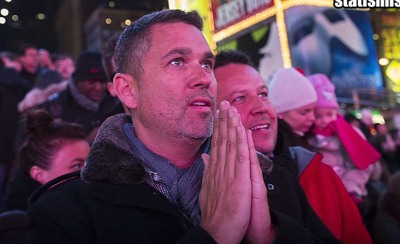
|
18A021 Lesson from an Error by Jim Davies, 5/22/2018
Back in the early 1980s, I made a mistake. Possibly I've made others since -I don't remember - but this one happened soon after I'd become a Libertarian. I'd understood the NAP, the Non-Aggression Principle, I'd grasped that initiating force was morally wrong, and I'd realized that government does nothing other than initiate force, and therefore that it is a blight upon the face of humanity which has, somehow, to go. At the time I supposed that the way to cause it to go was to use political action, to grow the Libertarian Party until it gained power and set about dismantling it all (okay, that was a second mistake.) I'd heard also that we humans have the basic right to run our own lives, but my error was that I didn't properly connect the two. I didn't see that the self ownership premise was undeniable, logically - that it was an axiom - and so that the NAP derived from it inexorably. I thought the NAP was a fine ethical principle, but one just plucked from thin air like an article of religion. That's wrong. No blind faith is involved. It's just a matter of facing a fact and drawing from it an unavoidable corollary. In the same period I learned that donations to religious entitites were tax-deductible, up to half of one's income. So I put the two together, and founded a religion, made myself its minister, declared its article of faith to be that "Coercion is Wrong" and donated half my salary to its treasury. It had one church (in my home) which generously provided its minister with a car and other comforts. Despite a subsequent difference of opinion with the IRS, I wound up depriving the FedGov of several thousand dollars, and so reduced its ability to cause that much mayhem and murder. I regret none of that. While chatting with the IRS I encountered an amazing thing. When one of its agents considered those large tax deductions she asked whether my religion was listed as approved. She actually reached to her shelf for a book of approved religions! Naturally mine wasn't in it, for I was not interested in the government's opinion of my religion and had not asked to be so listed; I had read that Congress shall make no law respecting an establishment of religion or prohibiting the free exercise thereof, and so knew that it had absolutely no right to determine what is and is not a religion or to discriminate among them; yet here she was, doing exactly that. I knew then that government does not even obey its own charter, the supreme law. Fast-forward to the recent past, when I realized that this discovery is but the tip of an iceberg. Not only does the FedGov flout its own charter - the only basis on which it can claim a right to exist - but also that no government can disentangle itself from religion, whether it wishes to or not. Here's why. Clearly, no government can obtain operating revenue by voluntary means; it must compel payments for its own support. That's because it's always a mechanism for transferring wealth from the productive majority to a parasitic minority, and nobody (or far too few) will volunteer to donate it. Conversely if it obtains funds by providing services for sale in the market, it ceases to be government. Either way, all governments must tax. Government and tax are inextricably linked. Therefore, every government must choose whether to tax religious entities like churches, or to exempt them. One or the other, it's a binary choice. If it chooses to tax them, government is prohibiting the free exercise of religion; whether a First Amendment exists or not, that is a fact. The two entities are linked. Conversely if it elects to exempt churches from its taxes, it has to discriminate among religions (as in my case, above) and make some kind of list of religions approved for exemption; once again, the two are linked. Conclusion so far: it is impossible for government to be separate from religion. Did the founders understand that, when they wrote Amendment 1? - I've no idea. If they did not, they were intellectually defective, or if they did, they were blatantly dishonest; for what it promises is impossible.
One factor not mentioned in the video: a result or by-product of many religions, notably Christianity, is that no matter how irrational their doctrinal bases or beliefs, members often become better, nicer people. More loving, generous, caring. Such generosity and humility has however no counterpart in the Government Religion; if it helps people, it does so on the false and impersonal basis that they are "entitled" to assistance - at someone else's expense. If some of its agents administer such care with compassion, it's because they are compassionate by nature, not as a result of the Statist religion. That important, redeeming feature of many religions is absent from the government cult. My mistake of the early 80s was to suppose that libertarianism - adherence to the NAP - is also a matter of faith. It's not. It follows from the undeniable premise that we each own ourselves, and the government cult expressly but irrationally denies that, thereby abandoning intellectual integrity; it holds that we each belong to the State - a wholly imaginary construct of faith. That is the cult, from which evereyone needs to be deprogrammed. The means are ready.
|
|
||||||||||||||||||||||||||||||||||||||||||

 There's even more. Not only are government and religion necessarily entwined, an excellent case can be made for the view that government is itself a religion. Here I strongly recommend spending 12½ minutes watching Larken Rose's
There's even more. Not only are government and religion necessarily entwined, an excellent case can be made for the view that government is itself a religion. Here I strongly recommend spending 12½ minutes watching Larken Rose's 








